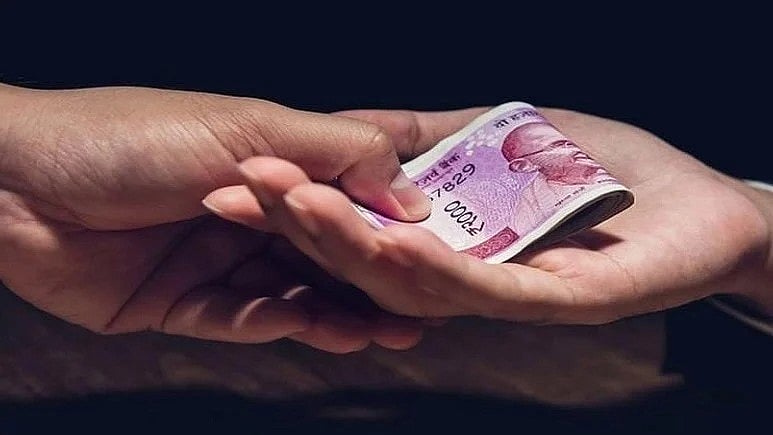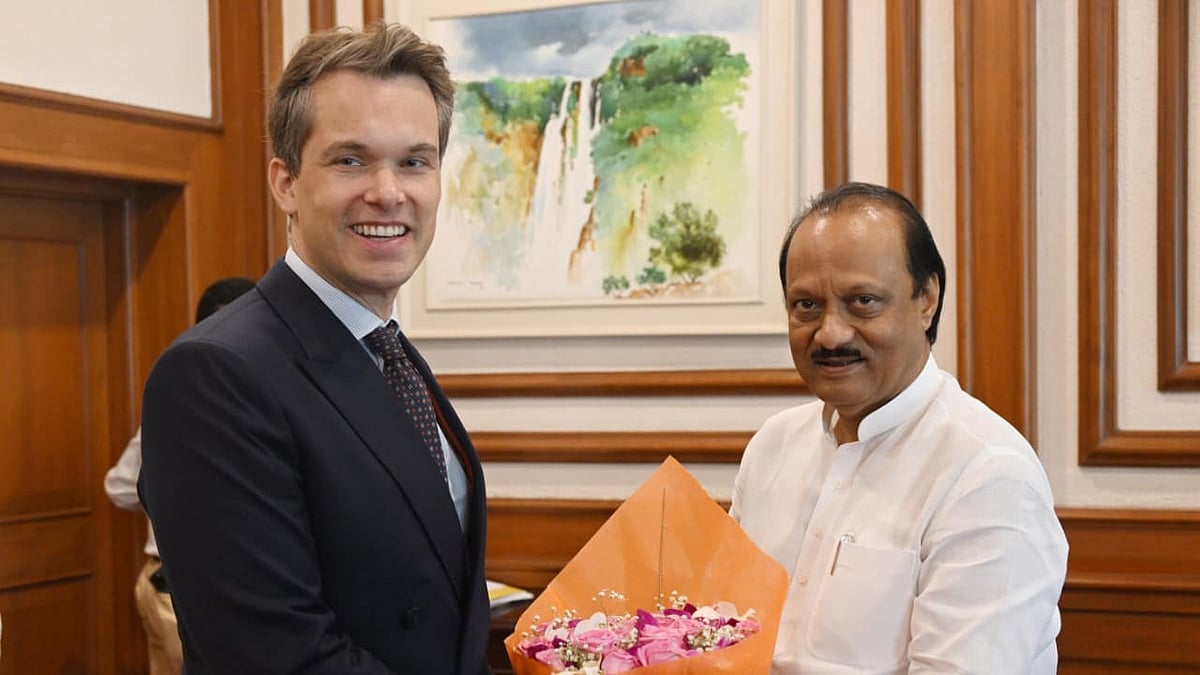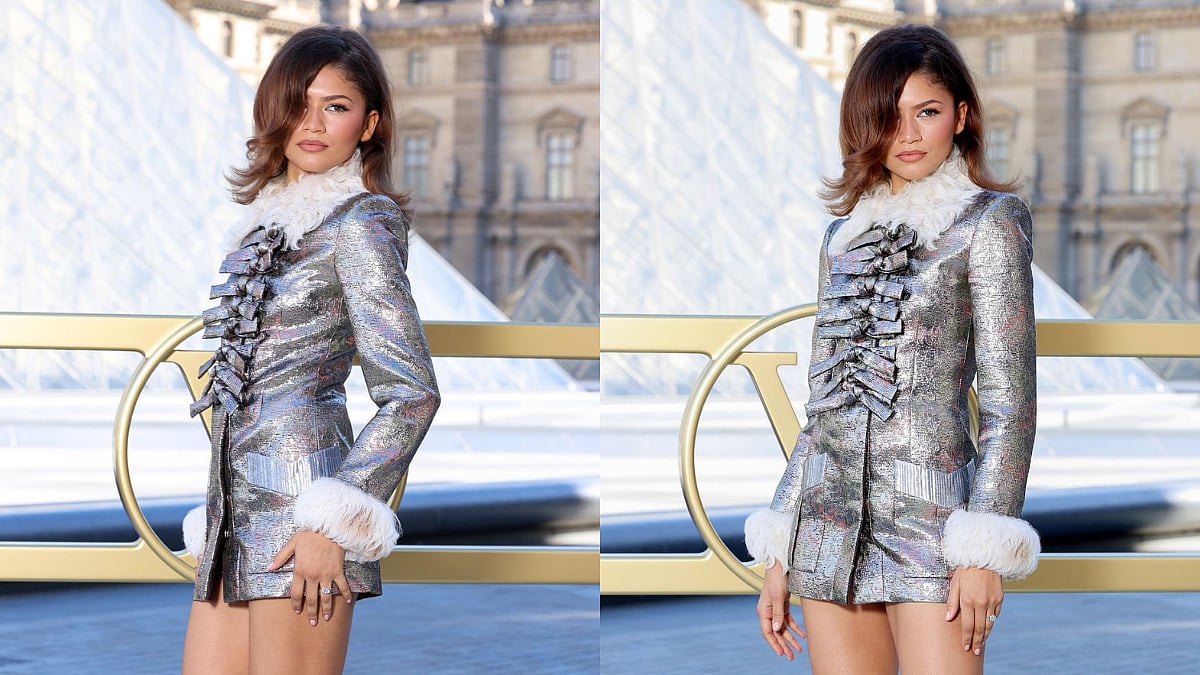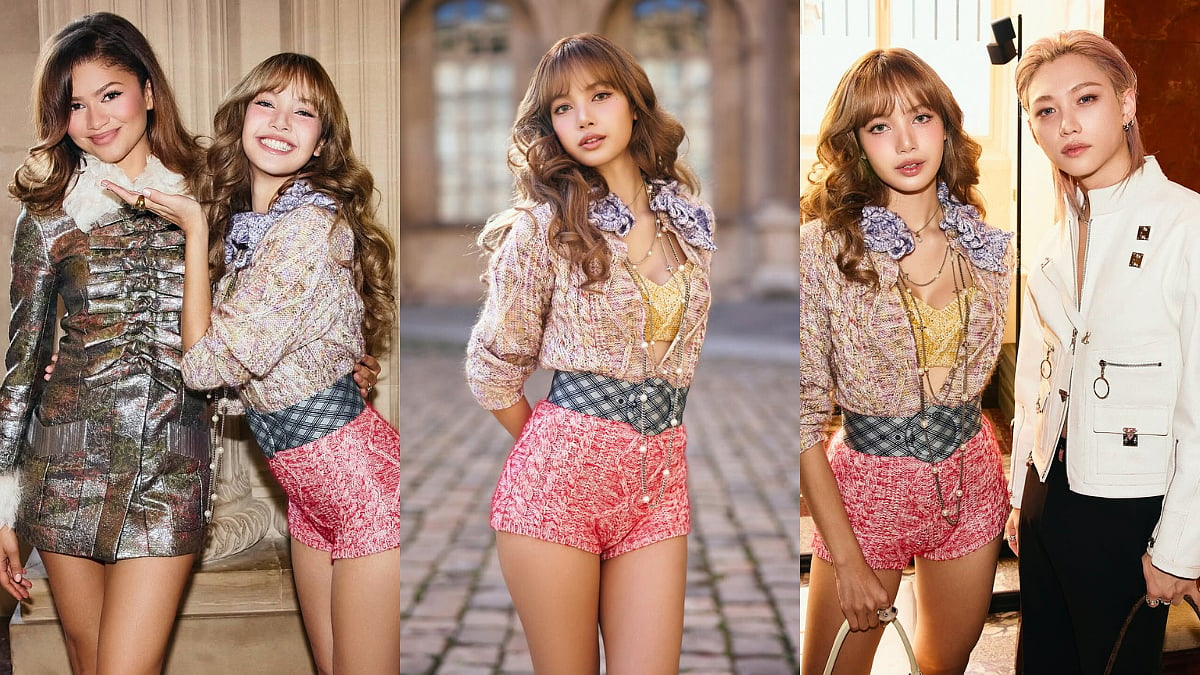Ek Madhav Baug - a play about a young man’s coming out to his mother through his personal diary which helps her understand what it means to be gay in India – has completed its sesquicentennial show. Actor-activist Mona Ambegaonkar who anchors this monoact, talks to Yogesh Pawar about the play and its journey vis-à-vis the LGBTQIA+ movement in India.
Ek Madhav Baug has crossed the milestone of 150 shows. How does it feel to be the face of the play?
On 30th June 2021, we completed 153 shows. I say 'we' because it is, and has always been, a group effort to stage each show; from reaching out to potential audiences to putting together the actual logistics of the show ie. travel, venue, etc., it takes many hands to help it along before I get to perform this incredible piece of theatre. I get to be the 'face' of the play by virtue, solely, of having the good fortune of being the performer. Its voice still belongs to its playwright, although, over the years, it's become a bit of a duet, with me trying to enhance his words in every show.
Could you recount how this journey began?
Clearly. It began when Vivek Anand, the CEO of Humsafar Trust, contacted me to look at a play, a soliloquy, which he had translated into Hindi, from an English version by Shanta Gokhale. He told me the original playwright was Chetan Datar and its original language was Marathi. He wanted me to perform his version at the 1st Kashish International Queer Film Festival, as a special event.
When I read his version and the one in English by Shanta Gokhale, I knew instinctively that both were neither complete nor a true reflection of the original in Marathi.
So, I beat my theatre “jungle drums” and Vivek and I tracked Chetan's brother down. Since Chetan had passed on and his brother was the caretaker of Chetan's estate and work, so it became necessary to contact him to get hold of the original Marathi play. Vivek had known Chetan when he was alive and so, when his brother heard that we wanted to stage the play at the festival, he immediately agreed to send it to us on the condition that its staging rights will reside solely with Humsafar Trust (HST) and I will perform it in the Hindi language.
When the script arrived 3-4 days later, we realised we were holding the original text of the play, handwritten by Chetan Datar, with all the crossed out, changed, annotated, over-written, corrected, and uncorrected text. The Original. It was a goose-bumps moment for me.
Then it took Vivek and me two days to translate the original Marathi play into Hindi. Basically, we read out aloud and put in only those words that were not recognisable in Hindi. For example, we retained words like ‘tiraskaar’ which are used both in Hindi and Marathi. Now the Hindi version is a complete mirror image of the original Marathi play.
And the first show was in Mumbai?
Yes. On the 4th day after completion of the translation I faced the house-full theatre at PVR Juhu, where the 1st Kashish Festival was inaugurated, and Ek Madhavbaug was born to me in Hindi. In 2012, HST was invited to perform the play at the UN AIDS conference in Washington DC and we realised that the Hindi and Marathi versions will not be enough. So, I sat in Queer Ink’s Khar office and translated it into English. That was a struggle because its hard to translate kaandaa bhajia into English!
Once done, I held a private performance-reading of it for Roy Wadia, just to ensure that an American audience would be able to understand the Indian English I wrote in, the idioms did not confuse, and the cultural references were not too opaque.
And that worked…
I am proud to say, I passed with flying colours and the performance was a rocking success. I realised later that it was seen by delegates from about 35 countries and translators in many languages were flying along with the text into the audience's ear-phones. I was a small figure, up on a stage made for a rock band, behind a podium, which, the text and its rendition, turned into a Maharashtrian household in Shivaji Park, Mumbai. Heady stuff!
Since that first show at the Kashish Film Festival, we have performed at corporate houses, educational institutions, semi-rural community halls besides commercial performances. Since the Covid pandemic, I have done several shows sitting in front of my computer at home.
Had you met Chetan Datar, the writer?
Sadly, no. But I knew his work well enough to know that the version of the play offered to me, at the beginning of my journey with it, was not truly his work or even the complete play.
How would you situate this play in the larger context of the larger human rights-based struggle for equality, dignity and acceptance for the LGBTQIA+ community?
Ek Madhavbaug plays a pivotal part as an out and proud (and definitely loud) voice of the struggles of the LGBTQIA+ community. We have never really treated it as a commercial project. It is a tool for outreach and has worked very well as an instrument for sensitising people to the needs and sufferings of sexual and gender minorities.
This means intracommunity outreach too?
Please understand its not just the heterosexual majority that is insensitive towards the LGBTQIA+ community. Even within the community there is a lack of understanding, awareness, and empathy towards the diversity that it spans. There is self-loathing and denial. There are double lives the community leads due to fear of what the unaccepting majority may do if they come out of their closets, but there is also a lot of judgement and rejection within the community.
Has the reading down of Sec 377 decriminalising sex between mutually consenting adults changed things?
Various arms of the law are still mostly unaware of IPC Section 377, both, as it was earlier and now, after it has been read down. Sadly, we are a country that gives in to mob rule at the drop of a hat and that mentality controls both, the people on the streets and even in our homes and more horrifyingly, our police and easily corruptible judiciary. With a society filled with such prejudice, the importance of Ek Madhavbaug can’t be emphasised enough.
Many feel what happens after each public staging of Ek Madhavbaug is often as important as the play itself?
Over the years, during the Q&A sessions, post-performance - which sometimes last longer than the play itself – I’ve seen people change as knowledge, information and awareness expands, both individually and collectively. People have ‘come out,’ as they claim their identity at the end of the show, to a room full of strangers and their fellow audience members. Parents have apologised to kids for not understanding them before. Of course, I’ve even had people abusing me and coming within an inch of hitting me, only to have the rest of the audience rise up as one to embrace the truth of the play. I only know, that for as long as the LGBTQIA+ community struggles for equality, dignity, and acceptance, for their basic human rights, Ek Madhavbaug will remain a part of that struggle.
Ek Madhavbaug is not only about LGBTQIA+ rights but also makes a larger point about exclusion and bigotry.
This is literally the most important question in this entire interview.
Not only does the play address universal issues of exclusion and bigotry, it also talks about exploitation, repression, self-hatred, society's ‘rules,’ the difficult places inhabited by love and the ultimate desperation of those forced into hiding their very selves, just to stay alive and physically unharmed.
The very fact that all of society and its ‘cultural values’ are heterosexual and relentlessly procreative in nature, sets the stage for mental harm to be openly inflicted on all people, no matter their gender identity or sexual preference.
The mother in Ek Madhavbaug leaves behind stifling relationships and numbness inducing ‘wifeliness” to give birth to a child out of wedlock and is then a single parent to three children. She never again finds anyone who wants to spend the rest of their life with her. She is a reject of the mating game. Even the father of her child born out of wedlock does not marry her, nor, indeed, remains by her side. Yet she rises above it and embraces her singledom, using it to power her into being ‘truly free.’ That is her reward for taking control of her life and making an independent choice. Do compare that to what would happen if a man chose to end his marriage or have a kid with another woman, out of wedlock. There is no stigma attached to such a man.
When it is revealed that this child is gay, the play forces the mother to ask if this is her punishment for ‘walking out of her marriage, for abandoning her husband.’ That is the depth to which patriarchy and repression is steeped even, in an ‘emancipated’ woman in our society.
And the son had his own demons to battle…
When the boy seeks mental health care to ‘cure his condition,’ the health care provider attempts to sexually exploit him. It reeks of the reality of every underprivileged, unprotected person who needs help to rise out of a situation that may be crushing them.
The boy finds self-acceptance and ‘enlightenment’ in a place of worship which is not that of his own faith, and the play clearly, yet gently, states that ‘divine revelation’ is not something that comes from outside but from within oneself… It is a product of our own relentless honesty and personal truth. And the mother's journey of acceptance and pride is fraught with 'traffic jams, blockages, bottlenecks, bad weather', exactly the way all worthwhile journeys must be.
I could go on, but that would be the entire play and copyright laws would apply! (tongue firmly in cheek here). Ek Madhavbaug is a timeless piece of world theatre and it talks of more than LGBTQIA+ rights. It talks of humanity and the vast array of its faults and merits.
Tell us how you prepped for this role in the beginning?
Lines, lines, lines!! The beginning is always ‘memorise the lines!’ It's 55 minutes of text, even if one performs it flat-out, without pauses, except to breathe. Once I have the lines, I put them out of my mind and say the first word and trust that my body, tongue, senses and mostly emotions, will get the rest of the words to follow that first word in the correct order and voila! The role, any role, hopefully, happens.
You make it sound so easy…
Only it isn’t. There is a constant mental finger-crossing that goes on with panic before each show. I believe in eye contact with audiences. It keeps me from losing balance on that razor edge of borrowed words, of the personality and experiences of the person I’m playing. It also means I can't fake it. In Ek Madhavbaug, I’m all the characters in the play. In a sense, I flirt with schizophrenia.
Which were the most challenging aspects of the characters?
I play all the six characters - four male, two female- in the play... The two female characters are actually one person with their personalities either truncated or manipulated for parts of the play, until they come together and become a whole, flawed maybe but put together, finally. Then there is the son, who is also played by the same physical structure that I have (since I have only one body to offer all the roles!) but is years younger and a completely different human being, including his gender. Furthermore, there is the psychiatrist, the priest and the man who tells her that her son is gay, on the phone. I play all without being unsympathetic to any. I have to play them true to themselves. Even in the sliminess of the psychiatrist or the rage of the man on the phone, I have to represent them and never judge them, otherwise the entire story, the drama, will be a lie. The most challenging aspect of the play is to switch from one character to the other, truthfully, without the visual aid of costumes or gender markers.
Does playing this character leave you emotionally drained after each show?
Not emotionally as much as physically. I find my hands tremble for a while and I may be a bit cranky, but eventually, and by that, I mean in a few minutes, I do regain my composure and have the energy to sit through, sometimes, an hour or more of Q&As, generally until the venue has to be vacated or the audience has to go home.
After so many shows, do you feel you can pull it off without preparation/rehearsals or do you still work on the lines?
Never make the mistake of being over-confident. I always prepare. Always rehearse. Lines, lines, lines. Before every show.
Do you work with the original play as a rigid structure? Or do you infuse newer elements of form and content in the play?
Since both the language versions I perform have also been written/adapted/translated in whole or part by me, I do put in a word or two, or even complete sentences that are topical or current. The form does not and cannot change. It has the exquisite structure of being a play within a play and that cannot be tampered with… That's sacred! The content remains the same too, obviously. I merely throw in bits of garnish occasionally. But I do believe you’d be hard-pressed to guess which bits!
The LGBTQIA+ movement in India has crossed several milestones. The needs, aspirations and how the community sees itself and perceptions are also changing. Do you feel the play is able to address these?
Yes. Since the play is affirmative and puts forth the message of acceptance and pride and inclusion, no matter how hard the journey of self-discovery is or the process of understanding may be, it absolutely addresses the changing needs and aspirations of the community. The play even endorses legal partnerships for same sex couples. It promotes safe sex. It promotes HIV/AIDS awareness. Above all, it emphatically humanises a community that has been, and continues to be, treated as less than human, by our rather patriarchal and regressive society.
You’ve acted in Evening Shadows in the past and also been doing shows of Ek Madhav Baug. Has this increased your bonding with the LGBTQIA+ community? Do they look up to you and reach out to talk?
I feel a strong bond with the community. I identify as an ally and also ‘queer,’ because I have always had friends who belong to the LGBTQIA+ community, even while I was growing up and I have been definitively informed that I am a ‘fag-hag.’ I find it easy to bond with people who are marginalised for any reason whatsoever and respect people who put up a fight for their rights and liberties.
I can't answer on behalf of the community, as far as their bonding towards me goes, partly because it's so vast and varied. But I have been dubbed “Pride Mom” and love that title.
Yes, people do approach me and talk to me, several of them have become close friends and comrades. Whether or not any of them look up to me, is for them to answer. I will walk with them all the way. That is all I know.
Has the play gotten the kind of recognition it deserves given its context and what it seeks to address?
It pains me to say, perhaps, no. It hasn't got the recognition it deserves. I am not saying this as ‘the face of the play,’ but because it truly addresses so many important, relevant, and even urgent issues. We premiered in 2010. 11 years on, we should have been celebrating 1,000 shows methinks.
It's HST and the community that has kept the play alive. It's their initiative, taking it into corporate spaces and workplaces, that has powered its journey so far. Without that, we wouldn't even have reached the 150 mark. A renowned theatre in the suburbs gave us the opportunity to perform in 2013. We had two sold out, packed shows and then they never gave us a booking again. We had a few shows at other theatres too, in South Bombay, Dadar etc., but we have never been allowed to have a long run, in commercial spaces.
Having said that, we still continue to perform the play and the journey continues. To reach out… sensitise… educate and continue to keep the conversation going.










